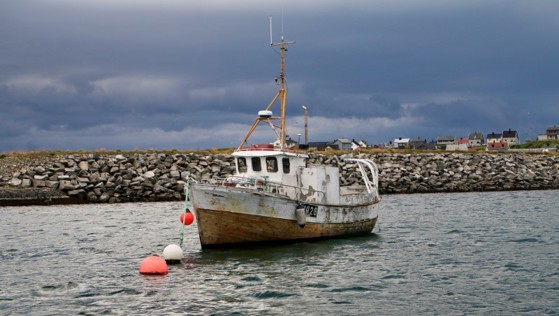Building a Sustainable Ocean Economy
Historisk arkiv
Publisert under: Regjeringen Solberg
Utgiver: Statsministerens kontor
Tale/innlegg | Dato: 25.09.2018
Av: Tidligere statsminister Erna Solberg (United Nations General Assembly 2018)
Statement by Prime Minister Erna Solberg on the opening of the Inaugural Meeting of the High-level Panel on Building a Sustainable Ocean Economy, New York, 24 September 2018.

Check against delivery
Colleagues,
Thank you for accepting my invitation to join the High-level Panel on Building a Sustainable Ocean Economy and for attending this inaugural meeting. I would like to express my special thanks to my co-chair President Remengesau for his efforts.
There are only 12 years left before 2030, the deadline for achieving the Sustainable Development Goals. The world has set itself an ambitious task.
To reach the SDGs we will have to produce more from the oceans. We need the oceans to provide more food, more jobs and more energy. And we must maintain their capacity to regulate the climate and support biodiversity.
For all these reasons, we must manage the oceans better.
We are here to help the world do just that.
At present the oceans are under threat from several directions:
- the effects of climate change
- marine litter and pollution
- illegal, unreported and unregulated fishing, and
- loss of habitats and biodiversity.
This is undermining the potential of the oceans. We urgently need to reduce these threats.
To build a sustainable ocean economy we must stop the degradation of the world’s marine ecosystems and improve the environmental status of the oceans.
This is why we have established the Panel. As the only ocean policy body consisting of serving world leaders, we have the authority and determination needed to trigger, amplify and accelerate action for ocean protection and production. We can encourage action across the board, in policy, governance and finance.
Our goal is to advance a new contract that will both protect the oceans and optimise their value to humankind.
There has been a recent surge in interest in the oceans, but something is still missing. Many stakeholders have not yet developed an evidence-based understanding of how sustainable use of the oceans and marine resources can increase value creation. We also need to know more about how the oceans can help us to meet some of our most vital needs: food security, employment, sustainable communities and resilience to climate change.
It is fully possible for a wide range of ocean-based economic activities to coexist with healthy oceans.
To ensure a transition to a sustainable ocean economy, everyone needs to be involved - from governments and industry to environmental NGOs and researchers.
A sound knowledge base is the foundation for all our work. We need to know about the threats to the oceans and the environmental status of marine areas. And we need to know about the economic potential of ocean industries, the jobs they can provide and the impacts they have on ecosystems.
We need to move from managing the ocean sector by sector to integrated ocean management based on scientific knowledge and taking account of the full range of opportunities and risks.
We will harness leading scientific expertise from around the globe to generate insights, identify solutions and develop strategies for turning solutions into reality.
Working closely with a team of experts, advisers and stakeholders, the Panel will operate on a tight schedule to develop a set of recommendations for making the transition to a sustainable ocean economy. This roadmap for the oceans will be presented in 2020 for consideration by the highest levels of government and business.
We must provide a framework for the sustainable use of the oceans. A framework that will maintain the functioning, productivity and diversity of the marine ecosystems that are the basis for wealth creation from the oceans. To put it simply: ocean health means ocean wealth.
We represent countries both large and small, but we all share the conviction that better policies and stronger joint action will allow us to “produce, protect and prosper”.
I would now like to give the floor to President Remengesau.